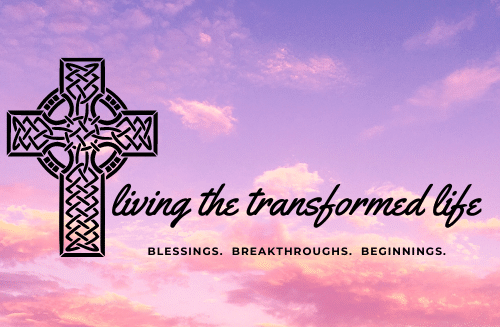 Letting Go Of What’s Holding You Back
Letting Go Of What’s Holding You Back
“The space in which we live should be for the person we are becoming now, not for the person we were in the past.” ~ Marie Kondo
Marie Kondo is an organization expert. Her mission is to bring order to people’s lives by helping them let go of the things in their life that don’t ‘spark joy’. She does this by encouraging people to part with the possessions that no longer serve them.
It’s an idea backed by science. A Princeton University study found that decluttering improves overall well-being. Basically, the study found that getting rid of things expands our clarity and focus. It helps us restore our mental health. It creates space for the things we really want in life.
What if we could declutter more than our old ‘stuff’? What if we could let go of our past by decluttering the painful experiences, limiting beliefs, and unhelpful narratives that no longer serve us? What if, by releasing our past, we made room for a new beginning?
Sounds great! After all, most of us have experienced pain, sadness, or anger when we’ve lost something important in our lives. Whether it be a personal relationship, loss of a job, memories from a difficult childhood, someone offending us, or a mistake that we made, painful reminders from the past can be persistent, making us tense and uncertain, and draining our energy. We cannot change the past but we can let go and move forward. Letting go of the past is challenging but not an impossible process.
But letting go of the past is easier said than done. Why is it so hard to let go?
While new beginnings can be fun and exciting, they also create uncertainty. The past is known. It’s familiar. It’s comfortable. On the other hand, uncertainty creates fear. Fear is like an anchor that keeps us tethered to a safe harbor when we could be out experiencing a new voyage.
If you find yourself struggling to release the past, here are a few tips to encourage you to pull anchor, set sail, and discover a new adventure for yourself.
 Realize Why You Need To Let Go
Realize Why You Need To Let Go
The first step is realizing that letting go of the past is something you need to do. It’s for your own good. A significant reason to let go of the past is that you can’t go back and alter it to prevent the occurrence or have a different outcome – the past is over. You can’t change it.
More importantly, your past is not who you are today. Your past consists of experiences that are only fragments of yourself and not your whole identity. And if you are a born-again Christian, your past is not your identity at all– you have a new identity in Christ.
Look at disturbing past events as lessons learned to improve your personal growth and future success. The past does not define you or your future.
From a health perspective, holding onto the past can result in depression, or in the case of traumatic events, Post-Traumatic Stress Disorder (PTSD). When you don’t let go of the hurt, you may find it challenging to function in the present, suppressing you from moving forward. The longer you hold on to the past, the harder it will be to let go and the longer your healing will take.
 Give Yourself Permission To Let Go
Give Yourself Permission To Let Go
Give yourself permission to let go. Keep in mind that you are not excusing the past; you’re simply putting it in its proper place. This is not the same as telling yourself, “Just get over it” or “It’s time to move on.” Instead, realize that you are letting go of what happened so that you can move forward to something new and better.
You might want to take a moment to ask yourself, “In what ways has my past made me a better person?” You may realize that your battles have given you increased determination and resilience. Perhaps you have greater empathy for others who struggle as you did. In fact, a painful past can make you better equipped to minister to those who have walked a similar path. Your survival can be the inspiration others need. Honoring the role your history played in helping you become the person you are is a great reminder that everything has a purpose.
My favorite verse is Romans 8:28, “And we know that in all things God works for the good of those who love Him, who have been called according to His purpose.” Keep that in mind as you put the past behind you.
 Forgiveness Plays A Part
Forgiveness Plays A Part
Forgiveness is another critical part of letting go. The first step in forgiving is accepting what happened. It can be difficult. It can be painful. It can be messy. That’s natural. Once you’ve accepted the past, allow yourself to feel whatever it is you feel. Then you can forgive and move forward.
This process doesn’t mean condoning wrongdoings. It means shifting the focus to your well-being, not the transgression or transgressor.
When you pardon or forgive someone for offending you, the burden of anger and resentment is lifted. That does not mean you must continue a relationship with the other person or allow them to mistreat you.
It means you can choose to accept the situation and emotions and pardon the person for the offense. When you truly forgive, you will have the benefits of a more positive outlook, reduced risk of mental and physical illness, and a boost to your well-being.
While you’re at it, how about forgiving yourself?
We can be so hard on ourselves – beating ourselves up for past mistakes, failures, regrets, decisions that didn’t pan out, or goals we failed to reach. Enough. You did the best you could. Now that you know better, you can do better. Forgiveness is the gift you give yourself. You’re worthy of forgiveness. Forgiving yourself, and others, is like unpacking emotional baggage – it frees up room to experience the new feelings that a fresh start will bring.
 New Habits, New Mindset
New Habits, New Mindset
You can’t erase the memories of the past. But you can take control of your response to those memories and emotions. Acknowledge that the past is a memory, not a present reality. What’s important is your present and your future. Focus your attention on the goodness of God and all that He has done for you. Find promises in the Bible that you can hold on to when the going gets rough. Don’t allow memories and the emotions they stir to control your thoughts and behavior. The mind is very malleable. You can change your thought patterns and develop a positive mindset. Consider getting counseling if you are having difficulty releasing the past.
In addition to working on your mindset, you may also have to change some of your habits. Eating right, exercising, and getting sufficient sleep are essential for good health. When your health is good, you can cope better, positivity and productivity increases, and your emotions become stable.
And don’t neglect your spiritual health. Pray and talk to God about what you’re going through, and ask for His help. Spend time daily reading the Bible. Go to church regularly so you can be strengthened and encouraged by the worship, teaching, and fellowship. Remember God’s promise in Jeremiah 29:11. “For I know the plans I have for you,” declares the Lord, “plans to prosper you and not to harm you, plans to give you hope and a future.”
Face your future, not your past. Coming to terms with the past in order to move forward is not always easy, but it’s definitely worth it, and so are you!
Did you enjoy this post? Leave a comment ~ share on social ~ subscribe for more!
Related Posts:
“Is A New You Really Possible?”
“Why Is It So Hard To Change?”
.

 Realize Why You Need To Let Go
Realize Why You Need To Let Go Give Yourself Permission To Let Go
Give Yourself Permission To Let Go Forgiveness Plays A Part
Forgiveness Plays A Part New Habits, New Mindset
New Habits, New Mindset
Great blog Tim! I agree, “you can’t erase the memories of the past. But you can take control of your response to those memories and emotions. Acknowledge that the past is a memory, not a present reality. What’s important is your present and your future.” What a profound statement!
Thanks!